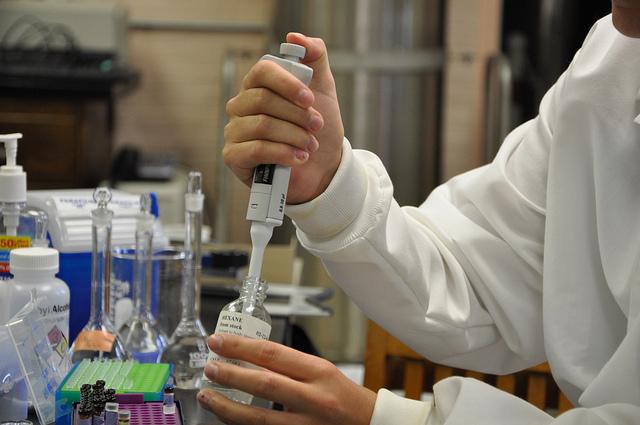Researchers at the University of Wisconsin recently discovered a switch in nerve cells that stimulates the regrowth of nerves after physical injury.
John Svaren, professor of comparative biosciences at UW’s School of Veterinary Medicine, said he and his colleagues at the Svaren Lab focus on the regulation of myelin and the cells that make myelin, Schwann cells.
Svaren and his team studied the PRC2 system, which silences gene regeneration and stops the repair process of Schwann cells, Svaren said. The system causes an “on-off switch” to remain “off.” The study focused on how to turn it back on so that damaged nerves can go into the repair process.
“If nerves are able to regrow and replace the injured nerve, it is due to the fact that these Schwann cells, that make myelin, start making substitutes that stimulate the regrowth of nerves back to where they should be in the first place,” Svaren said.
The Journal of Neuroscience published Svaren’s finding last month.
Myelin is an important part of the nervous system as it increases the speed of reactions and provides nutritional support for neurons, Svaren said.
One type of myelin is in the brain and the other is in the peripheral nervous system, which includes the spinal cord, Svaren said. Schwann cells are vital for the regrowth of nerves after a spinal cord injury or any kind of injury to the brain or spine.
Aside from helping those who suffer physical injury, their findings can help diabetics who suffer from nerve damage caused by their diabetes, Svaren said. High blood sugar can injure nerve cells throughout your body, but diabetic nerve damage affects nerves in your legs and feet.
The excess sugar prohibits Schwann cells from working as efficiently, causing diabetics pain, tingling and loss of sensation in their feet or hands.
Another job of Schwann cells is that they clean up the debris that occurs after nerve injury, while also stimulating other cells to help with cleanup, Svaren said. Schwann cells then prepare the way for new cells to grow, Svaren said.
“If we can find ways to stimulate the transition of cleanup and regrowth, we can try to make repair of injury better, because as you get older your ability to regenerate nerves is worse,” Svaren said.












